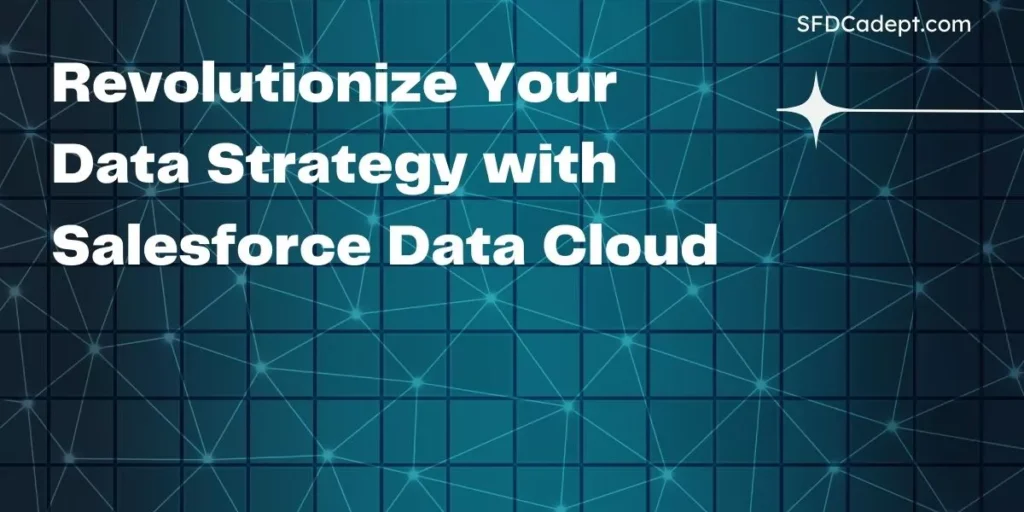Salesforce Data Cloud has emerged as a game-changer in the realm of data management, offering a suite of features and capabilities that empower businesses to harness the full potential of their data. In this article, we will explore the diverse functionalities of Salesforce Data Cloud, ranging from data ingestion and harmonization to the integration of AI and its impact on various applications like Customer 360.
The Power of AI in Data Cloud
Salesforce Data Cloud takes advantage of Artificial Intelligence to elevate its capabilities. Users can create their predictive AI models, integrate predictions from Databricks models, and connect with generative AI large language models from OpenAI and Azure Open AI through Einstein Studio. This integration enables users to leverage AI models in batch transforms and flow actions, unlocking new possibilities for data-driven decision-making.
Real-Time Insights with Data Graphs
Retrieving customer data in near real-time is a critical aspect of enhancing customer experiences. Data graphs play a pivotal role in achieving this by providing pre-computed customer data from selected primary data model objects and their related objects. Serialized into a JSON blob, this data allows for rapid retrieval and processing, facilitating swift personalization for websites and responsive generative AI.
Streamlined Enablement for Data Cloud
Starting in Spring ’24, Salesforce has streamlined the enablement process for Data Cloud. Once licensed on an organization, Data Cloud enters enablement, and organizations can track progress through the Data Cloud Setup home page. Even for orgs provisioned before Spring ’24, enabling Data Cloud is a simple process, accessible by clicking Get Started in the Data Cloud Setup.
Leveraging WhatsApp Data for Engaging Experiences
Salesforce Data Cloud expands its capabilities by incorporating WhatsApp data from Marketing Cloud. This addition allows businesses to create personalized interactions with customers, utilizing WhatsApp engagement data to trigger targeted campaigns in Marketing Cloud. The seamless integration of WhatsApp data enhances the overall effectiveness of marketing strategies.
Inclusive Data Transformations
Salesforce Data Cloud introduces the ability to include more complex data in batch data transforms. This includes accessing multivalue data in a formula transformation, allowing for the conversion of multivalue fields into strings or the merging of rows into a single array using window functions.
Effortless S3 Data Streams with Amazon S3 Connector
Creating S3 data streams is now more straightforward with the new Amazon S3 Connector. Users no longer need to enter S3 bucket credentials for each data stream. The connector enables one-time authentication, simplifying the process of ingesting data into Data Cloud. Existing S3 data streams remain unaffected, ensuring continuity in data ingestion.
New Data Types for Enhanced Flexibility
Salesforce Data Cloud introduces new data types, including email, URL, phone, percent, and boolean. These additions enhance the flexibility of data compatibility and interoperability with external systems interfacing with Data Cloud.
Consume Native Salesforce Data Cloud Objects in Tableau
Accessing and consuming Data Cloud objects in Tableau Cloud and Tableau Desktop is now more user-friendly. Data lake objects (DLOs), data model objects (DMOs), and calculated insights are easily discoverable and consumable, appearing in search results, connection dialogs, external assets, and other relevant places.
Collaboration Between Tableau and Data Cloud
Salesforce facilitates collaboration between Tableau data analysts and digital marketers by allowing Tableau data analysts to create segments with the rich visual experience offered by Tableau Cloud. These segments can be sent to Data Cloud for activation, enhancing synergy between the two platforms.
Targeted Audience Segmentation with Generative AI
Salesforce Data Cloud introduces Einstein Segment Creation, enabling users to build targeted audience segments using generative AI. Users can describe their target audience, and Einstein Segment Creation produces a segment in seconds using trusted customer data available in Data Cloud. The segment can be further edited and fine-tuned for precision.
Fine-Tune Segments with Boolean Expressions
Tailoring segments is made more versatile with the introduction of boolean expressions. Users can use expressions like Has Value, Has No Value, Is True, and Is False to refine their segments. For instance, creating a targeted campaign for high-engagement customers who have made in-app purchases becomes seamless using the Is True boolean expression.
Analyze Segment Performance with Segment Intelligence
Segment Intelligence is an in-platform tool for Data Cloud for Marketing, offering a simplified setup process, out-of-the-box data connectors, and pre-built visualizations. It empowers users to analyze segment data and optimize activations across common channels, including Marketing Cloud Engagement, Google Ads, Meta Ads, and Commerce Cloud.
Quick Population Estimates with Approximate Segment Population
Salesforce Data Cloud introduces an Approximate Segment Population (Beta) field, providing users with quick population estimates when building a segment. This allows users to validate segment rules efficiently, make adjustments, and save the segment to get the final population count.
Native Activation Destinations: Google DV360, LinkedIn, SnapChat
Salesforce Data Cloud expands its native activation destinations, allowing users to activate segments directly to Google DV360, LinkedIn, and SnapChat. This integration facilitates targeted advertising campaigns and insights reporting on these popular platforms.
Latest Features in Salesforce for Data Cloud
Salesforce continually enhances Data Cloud with the latest features, ensuring that users have access to cutting-edge functionalities for their data management needs.
Easy Access to Data Cloud Connect API Reference Information
Locating and browsing Salesforce Data Cloud Connect API reference documentation is now simplified with the standalone Data Cloud Connect REST API guide. The guide separates Data Cloud Connect API topics from the main Connect REST API Developer Guide, providing a dedicated resource for users.
Conclusion
This article explains Salesforce Data Cloud features and how it stands as a dynamic and comprehensive solution for businesses seeking to optimize their data management strategies.
